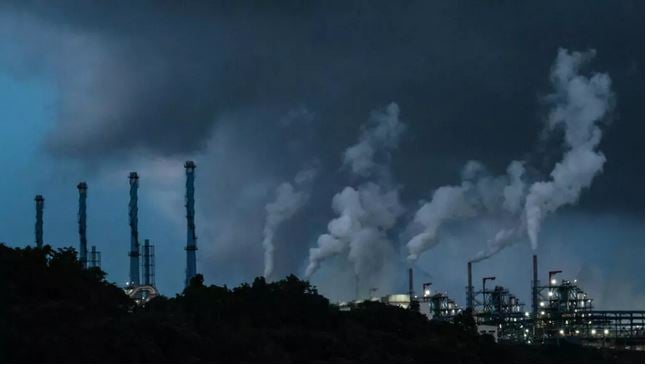News Flash

JAKARTA, June 5, 2025 (BSS/AFP) - The Indonesian government is allowing environmental damage including deforestation and violations against Indigenous people to go unchecked around a multi-billion dollar industrial park on a once-pristine eastern island, a report said Thursday.
Indonesia is both the world's largest nickel producer, and home to the biggest-known reserves, and a 2020 export ban has spurred a domestic industrial boom.
Operations have grown around Weda Bay, the world's largest nickel mine by production, on Halmahera island as Indonesia exploits the metal reserves used in everything from electric vehicle batteries to stainless steel.
Climate Rights International (CRI) said companies had caused a spike in air and water pollution and deforestation around the industrial park, accusing the government of ignoring their conduct.
"The Indonesian government is giving a green light to corporate practices that prioritise profits over the rights of local communities and the environment," Krista Shennum, researcher at Climate Rights International, told AFP.
"The Indonesian government should immediately hold companies accountable. This could include civil penalties, criminal prosecutions, or rescinding permits."
Much of the park's nickel is sourced by Weda Bay Nickel (WBN), a joint venture of Indonesian mining firm Antam and Singapore-based Strand Minerals, with shares divided between French mining giant Eramet and Chinese steel major Tsingshan.
An AFP report last week detailed how the home of the nomadic Hongana Manyawa tribe was being eaten away by the world's largest nickel mine, with members issuing a call for nickel companies to leave their tribal lands alone.
- 'Criminalisation, harassment' -
Locals have reported a rise in air pollution from nickel processing smelters and rivers polluted by nickel tailings in soil brought down by heavy rain.
Water tests by Indonesian NGOs AEER, JATAM, and Nexus3 Foundation in 2023 and 2024 "revealed dangerously high levels of nickel and hexavalent chromium, among other pollutants", the report said.
"(Companies) are failing local communities by not making information about the safety of important drinking water sources publicly available and accessible," said Shennum.
Both WBN and Eramet told AFP last week they work to minimise impacts on the environment, including conducting water tests.
CRI also said Indonesian and foreign companies in coordination with police and military personnel had "engaged in land grabbing, coercion and intimidation" of Indigenous peoples and other communities.
Local activists and students opposing the industrial park have "faced criminalisation, harassment and smear campaigns", the report said.
Weda Bay Nickel and the Indonesian government did not immediately respond to a request for comment.
But Indonesia's energy ministry told AFP last week it was committed to "protecting the rights of Indigenous peoples and ensuring that mining activities do not damage their lives and environment".